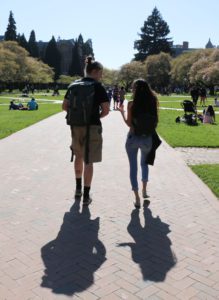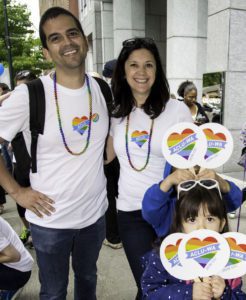Rethinking Our Education System
By the LEV Policy Team
 In the 2017 legislative session, Washington state is poised to make historic investments in basic education. But what will those dollars buy? The current program of “basic education” is not robust enough to meet our “paramount duty” and ensure that all students have the knowledge and skills to compete in today’s economy and participate in our state’s democracy. The upcoming investment provides an unprecedented opportunity to rethink our system of education and the resources and tools at our disposal to provide Washington students with the education promised by our Constitution.
In the 2017 legislative session, Washington state is poised to make historic investments in basic education. But what will those dollars buy? The current program of “basic education” is not robust enough to meet our “paramount duty” and ensure that all students have the knowledge and skills to compete in today’s economy and participate in our state’s democracy. The upcoming investment provides an unprecedented opportunity to rethink our system of education and the resources and tools at our disposal to provide Washington students with the education promised by our Constitution.
What is required of our educational system will continue to change over time. We need to develop a program of basic education that can evolve based on current and future student needs and a funding mechanism that is flexible enough to support that shifting program. Let’s envision a program of basic education that is aspirational and that creates a new path forward for Washington state. The vision should include best practices, teaching and instruction that closes achievement gaps, supports that allow students to be the best learners, a program that doesn’t start with kindergarten and end with high school, but consists of the full education continuum—early learning through postsecondary.
Ample and equitable funding is necessary to build a robust education system that works for all children. However, money is a tool, not a solution. New dollars should be seen as a tool to improve our system for all students. We believe that this can be done by rethinking how we:
- compensate teachers and staff
- leverage funding and human resources according to meet student needs
- recruit, retain, and train teachers
- provide additional student supports
- measure the effectiveness of our investments and improve practice
How should we redefine basic education? Well, we don’t have to look far. There are programs and practices across our state that are working but need the proper investments in order to be sustained and spread to other schools and districts. Over the next few months, we’ll share how money can be used as a tool to fix teacher compensation; recruit, retain, and train qualified teachers; and add necessary student supports that yield positive outcomes and close achievement gaps. We’ll also share stories from around the state on how districts, community-based organizations, and citizens are closing gaps and subsidizing “basic education” with local resources. Asking the paramount question: How can money be used to go beyond our current basic education?
#BeyondBasic
Read Part 2 of our McCleary blog series, Teachers: The Most Important Part of Our Education System








 By Nick Nogrady, Program Director, Page Ahead Children’s Literacy Program, guest blogger
By Nick Nogrady, Program Director, Page Ahead Children’s Literacy Program, guest blogger